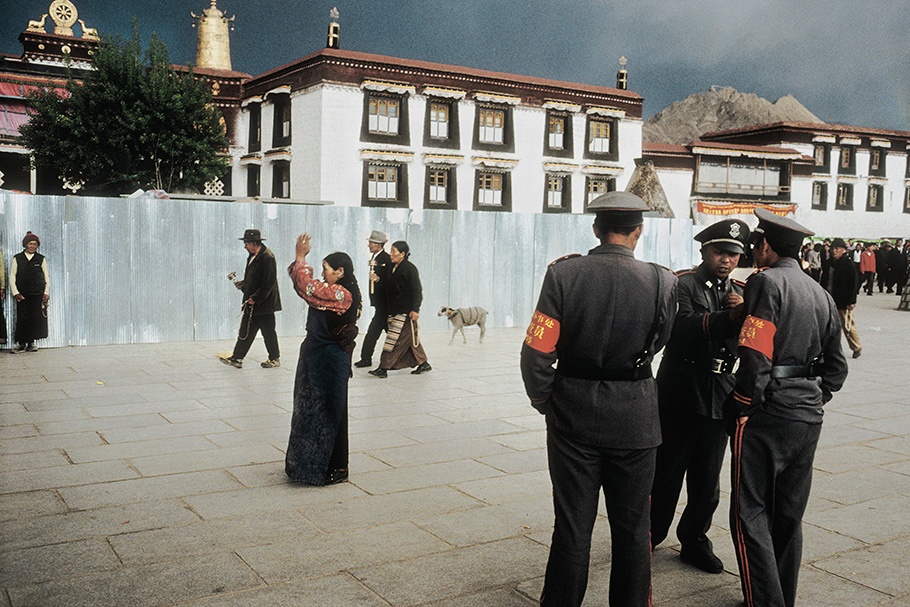
(TibetanReview.net, Feb13, 2018) – Calling those who oppose or criticize and possibly work against its repressive policies “criminal gangs”, Chinese authorities in the so-called Tibet Autonomous Region (TAR) have called on local people to be on the lookout for such “criminals” and report them to the police. The region’s public security Bureau had released a circular listing 22 illegal activities it wanted people to report, three of which directly mentioned the “Dalai group”, reported China’s official globaltimes.cn Feb 11.
The report said the circular had come after the Communist Party of China Central Committee and the State Council in January announced a renewed effort to fight organized crime and officials who shelter criminal organizations.
The report said the circular warned local people to be on the lookout for what it called the ‘evil forces’ of the Dalai Lama that might use local temples and religious control “to confuse and incite” people against the Party and government. Those who campaign to promote the Tibetan language are also dubbed as gangsters.
Calling the so-called criminal gangs cancers on the healthy economic and social development, and the “gangsters” a chronic disease that severely disgusts the public, the bureau was reported to ask people to report on the activities of ‘foreign hostile forces’ that may seek financial support for the Dalai Lama”.
The report claimed that the Dalai Lama had been in exile for decades “but still holds the ambition to split China’s Tibet from the Chinese territory”.
The report cited Wang Xiaobin, a scholar at the Beijing-based China Tibetology Research Center, as saying the circular echoed the primary task of Tibet, which was to maintain national and ethnic unity.
There are a few groups in China that are closely connected with the Dalai group, and help each other at home and abroad. They challenge the Chinese government using ingenious methods and pose a huge threat to national interests, Wang was further quoted as saying.
The report also quoted a professor at the Public Security University of China, an expert in religions surnamed Dai, as saying, “Collusion with criminal gangs is a tactic the Dalai group uses to spreading its message of separatism. These kinds of gangsters were involved in the Lhasa rebellion in the 1950s and the violent incident in 2008 in Tibet,”
In China itself, the new campaign involves fighting corruption, including lower-level corrupt officials, and deal with the “protective umbrellas” of gang crime (the officials who shelter the criminals), the report cited the official Xinhua News Agency as saying.
However, the campaign’s sweeping reach targets “gangsters who threaten political stability and infiltrate politics, or encourage the public to go against the Party and government under the disguise of religion, or prompting ethnic extremism”.
In this connection, the report cited Wang as saying that “hostile forces” and some intellectuals who advocate “protecting the local language,” were attempting to spread what he has called the false notion that the Chinese language is destroying Tibetan culture.





